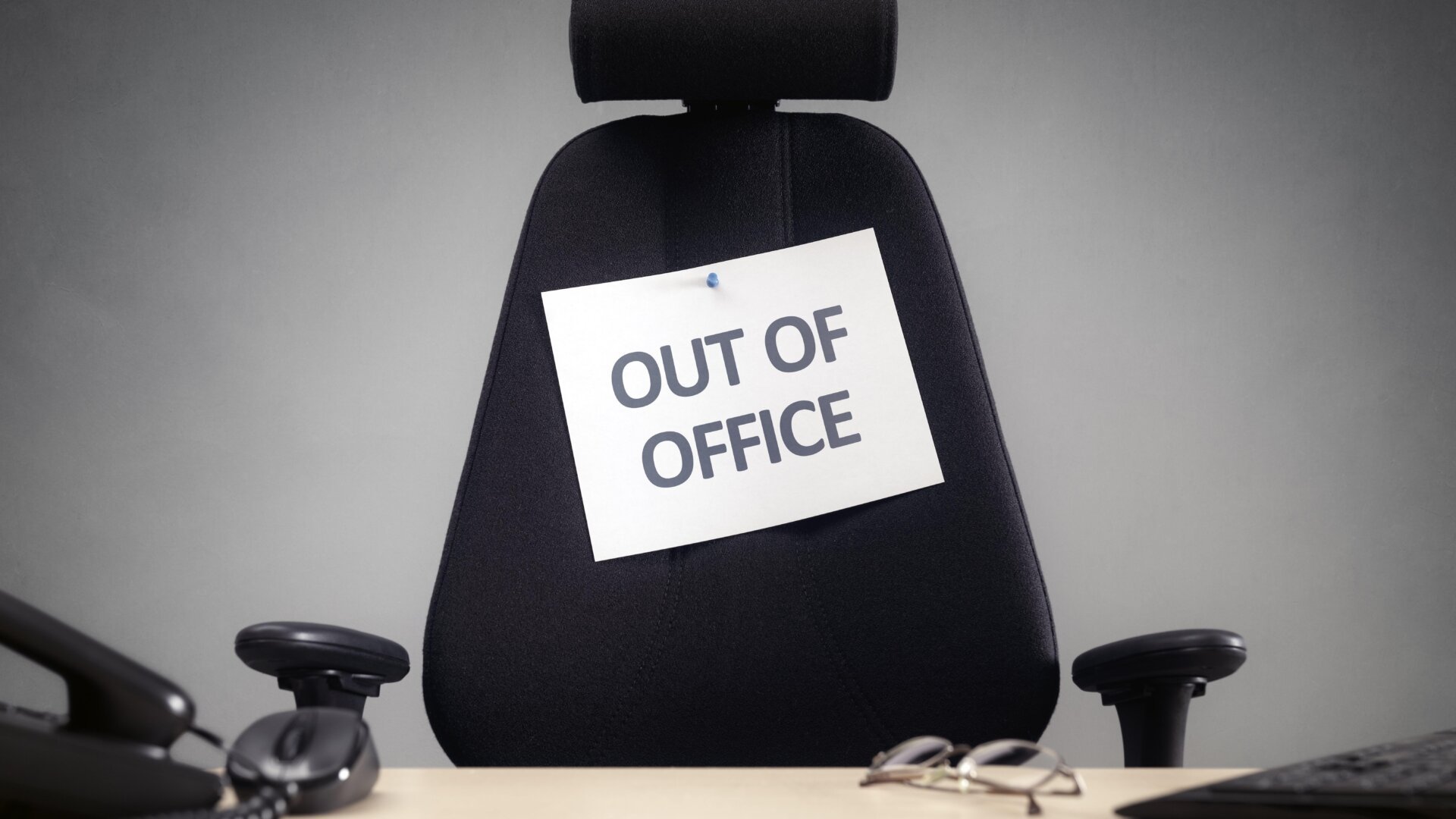The End of Work As We Know It

For centuries, work has defined us. It has given us identity, purpose, and status in society. But what happens when work, our source of income, itself begins to disappear? Not because of war, depression, or outsourcing, but because of algorithms. What does it mean to work in an AI-driven economy? I spent this month of July interviewing several experts from diverse corners of the labor landscape. Through these conversations, a complex and often contradictory picture emerges, one filled with both promise and peril, efficiency and exploitation, displacement and dignity.
The View from the Top: Efficiency, Experience
From the C-suite, the AI revolution is viewed with a mixture of excitement and urgency. Dr. Elijah Clark, a consultant who advises companies on AI implementation, is blunt about the bottom line. “CEOs are extremely excited about the opportunities that AI brings,” he says. “As a CEO myself, I can tell you, I’m extremely excited about it. I’ve laid off employees myself because of AI. AI doesn’t go on strike. It doesn’t ask for a pay raise. These things that you don’t have to deal with as a CEO.”
This unvarnished perspective reveals a fundamental truth about the corporate embrace of AI: it is, at its core, a quest for efficiency and profitability. And in this quest, human labor is often seen as a liability, an obstacle to be overcome. Dr. Clark recalls firing 27 out of 30 student workers in a sales enablement team he was leading. “We can get done in less than a day, less than an hour, what they were taking a week to produce,” he explains. “In the area of efficiency, it made more sense to get rid of people.”
Peter Miscovich, JLL’s Global Future of Work Leader, sees AI as an “accelerant of a trend that was underway for the last 40, 50 years.” He describes a “decoupling” of headcount from real estate and revenue, a trend that is now being supercharged by AI. “Today, 20% of the Fortune 500 in 2025 has less headcount than they had in 2015,” he notes.
But Miscovich also paints a picture of a future where the physical workplace is not obsolete but transformed. He envisions “experiential workplaces” that are “highly amenitized” and “highly desirable,” like a “boutique hotel.” In these “Lego-ized” offices, with their movable walls and plug-and-play technology, the goal is to create a “magnet” for talent. “You can whip the children, or you can give the children candy,” he says. “And, you know, people respond better to the candy than to the whipping.”
Yet, even in this vision of a more pleasant workplace, the specter of displacement looms large. Miscovich acknowledges that companies are planning for a future where headcount could be “reduced by 40%.” And Dr. Clark is even more direct. “A lot of CEOs are saying that, knowing that they’re going to come up in the next six months to a year and start laying people off,” he says. “They’re looking for ways to save money at every single company that exists.”
The Hidden Human Cost: “It’s a New Era in Forced Labor”
While executives and consultants talk of efficiency and experience, a very different story is being told by those on the front lines of the AI economy. Adrienne Williams, a former Amazon delivery driver and warehouse worker, offers a starkly different perspective. “It’s a new era in like forced labor,” she says. “It’s not slavery, because slavery is different. You can’t move around, but it is forced labor.”
Williams, a research fellow at the Distributed AI Research Institute (DAIR) that focuses on examining the social and ethical impact of AI, is referring to the invisible work that we all do to train AI systems every time we use our phones, browse social media, or shop online. “You’re already training AI,” she explains. “And so as they’re taking jobs away, if we just had the ability to understand who was taking our data, how it was being used and the revenue it was making, we should have some sovereignty over that.”
This “invisible work” is made visible in the stories of gig workers like Krystal Kauffman, who has been working on Amazon’s Mechanical Turk platform since 2015. She has witnessed firsthand the shift from a diverse range of tasks to a near-exclusive focus on “data labeling, data annotation, things like that.” This work, she explains, is the human labor that powers the AI boom. “Human labor is absolutely powering the AI boom,” she says. “And I think one thing that a lot of people say is, ‘teach AI to think,’ but it’s actually, at the end of the day, it’s not thinking. It’s recognizing patterns.”
The conditions for this hidden workforce are often exploitative. Kauffman, who is also a research fellow at DAIR, describes how workers are “hidden,” “underpaid,” and denied basic benefits. She also speaks of the psychological toll of content moderation, a common form of AI-related work. “We talked to somebody who was moderating video content of a war in which his family was involved in a genocide, and he saw his own cousin through annotating data,” she recalls. “And then he was told to get over it and get back to work.”
Williams, who has worked in both warehouses and classrooms, has seen the harmful effects of AI in a variety of settings. In schools, she says, AI-driven educational tools are creating a “very carceral” environment where children are suffering from “migraines, back pain, neck pain.” In warehouses, workers are “ruining their hands, getting tendonitis so bad they can’t move them,” and pregnant women are being fired for needing “modified duties.” “I’ve talked to women who have lost their babies because Amazon refused to give them modified duties,” she says.
The Dignity of Human Work: “A Calling” in the Face of Automation
In the face of this technological onslaught, there are those who are fighting to preserve the dignity of human labor. Ai-jen Poo, president of the National Domestic Workers Alliance, is a leading voice in this movement. She champions “care work”—the work of nurturing children, supporting people with disabilities, and caring for older adults—as a prime example of the kind of “human-anchored” work that technology cannot easily replace.
“That work of enabling potential and supporting dignity and agency for other human beings is at its heart human work,” she says. “Now, what I think needs to happen is that technology should be leveraged to support quality of work and quality of life as the fundamental goals, as opposed to displacing human workers.”
Poo argues for a fundamental rethinking of our economic priorities. “I would create a whole new foundation of safety net that workers could expect,” she says, “that they could have access to basic human needs like health care, paid time off, paid leave, affordable child care, affordable long-term care. I would raise the minimum wage so that at least people who are working are earning a wage that can allow them to pay the bills.”
For the care workers Poo represents, their work is more than just a job; it’s a “calling.” “The median income for a home care worker is $22,000 per year,” she notes. “And people in our membership have done this work for three decades. They see it as a calling, and what they would really like is for these jobs to offer the kind of economic security and dignity that they deserve.”
A Fork in the Road: Deepening Inequality or Democratizing Technology?
The conversations with these specialists reveal a stark choice, a fork in the road for the future of work. On the one hand, there is the path of unchecked technological determinism, where AI is used to maximize profits, displace workers, and deepen existing inequalities. Adrienne Williams warns that AI has the potential to “exacerbate all these problems we already have,” particularly for “poor people across the board.”
On the other hand, there is the possibility of a more democratic and humane future, one where technology is harnessed to serve human needs and values. Ai-jen Poo believes that we can “democratize” AI by giving “working-class people the ability to shape these tools and to have a voice.” She points to the work of the National Domestic Workers Alliance, which is “building our own tools” to empower care workers.
Krystal Kauffman also sees hope in the growing movement of worker organizations. “The company wants to keep this group at the bottom,” she says of gig workers, “but I think what we’re seeing is that group saying ‘no more, we exist,’ and starting to push back.”
The Search for Meaning in a Post-Work World
Ultimately, the question of the purpose of work in an AI-driven economy is a question of values. Is the purpose of our economy to generate wealth for a few, or to create a society where everyone has the opportunity to live a dignified and meaningful life?
Dr. Clark is clear that from the CEO’s perspective, the “humanness inside of the whole thing is not happening.” The focus is on “growth and that’s maintaining the business and efficiency and profit.” But for Ai-jen Poo, the meaning of work is something much deeper. “Work should be about a way that people feel a sense of pride in their contributions to their families, their communities and to society as a whole,” she says. “Feel a sense of belonging and have recognition for their contribution and feel like they have agency over their future.”
Our Take
The question is not just whether machines will do what we do, but whether they will unmake who we are.
The warning signs are everywhere: companies building systems not to empower workers but to erase them, workers internalizing the message that their skills, their labor and even their humanity are replaceable, and an economy barreling ahead with no plan for how to absorb the shock when work stops being the thing that binds us together.
It is not inevitable that this ends badly. There are choices to be made: to build laws that actually have teeth, to create safety nets strong enough to handle mass change, to treat data labor as labor, and to finally value work that cannot be automated, the work of caring for each other and our communities.
But we do not have much time. As Dr. Clark told me bluntly: “I am hired by CEOs to figure out how to use AI to cut jobs. Not in ten years. Right now.”
The real question is no longer whether AI will change work. It is whether we will let it change what it means to be human.








